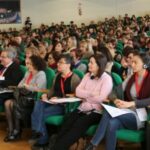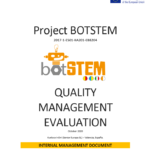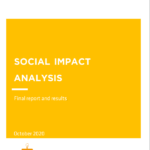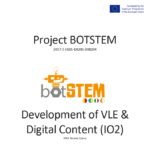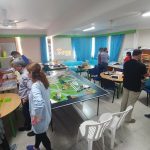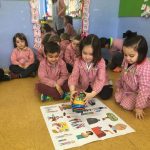In a highly specialized and technologized world, a critical and competent citizenship in science and technology is more needed than ever. STEM (Science, Technology, Engineering, and Mathematics) could be addressed since early childhood promoting an active and participative methodology, focused on inquiry-based learning and collaborative projects. Also, Educational Technology – such as robotics and code-learning – brings new opportunities for designing attractive approaches and tools to improve the engagement of kids, enhancing the academic outcomes in Science, Maths and Technology subjects and increase the scientific vocations.
Project Presentation
Objectives
Although STEM programmes increase rapidly, these are focused on high schools and after-school activities. While these approaches are being considered by policy makers, still remains a lack of research in this field and its adaptation to Childhood and Primary Education. These stages are a crucial period for enhancing future careers and changing the societal misconceptions and prejudices against science and technology.
The objective of BOTSTEM is to develop new tools by means of inquiry teaching, open robotics and code-learning for enhancing current didactics of STEM subjects. BOTSTEM is aimed and fully in-line with the formal education curricula and its purposes for childhood and primary schools.
Specifically, BOTSTEM aims at:
- improving the acquisition and competencies and, thus, potential students’ achievement in STEM, particularly in Natural Sciences and Maths, through innovative methodologies and resources, open source software/hardware, inquiry-based projects and code languages (IOs)
- developing tools more appealing for pupils (educational games, open robots, playable code-learning and suitable methods for implementing them)
- enhancing the quality and integration of Long-life training aimed at teachers through VLEs which allow a peer-learning more flexible and cost-effective
- optimising the public image and perception of Science and Technology, overcoming the prejudices that kids assume in their early childhood leading an early intervention in STEM integrated with a gender-based approach.
Project’s Partners
BOTSTEM consortium brings together a multidisciplinary team with a wide geographical coverage: Spain, Sweden, Italy and Cyprus, reflecting a wide variety of cultural backgrounds and formal education systems. It is comprised by
- University of Burgos and Kristianstad University, both experts in Education, STEM and robotics
- Polo Europeo della Conoscenza and Ideodromio, the first one a national public body , network fo Educational Insitutions no profit and the sendon a non-profit organisations promoting the STEM education and Citizens’Science
- Adele Robots, a highly-innovative SME working on social robots, artificial emotions and collaborative robotics
- K-Veloce, experts on Social Impact Assessment, gender and Dissemination strategy.
Impact
BOTSTEM aims to reach 14000 individuals during its lifecycle; 50000 at long-term. More than 1500 teachers, 600 researchers, 20 policy makers, 3000 families and more than 1500 children (4-8 years old) will be reached. BOTSTEM will substantially impact on the formal education system and the society as a whole.
- Children (4-8 years old): Significant improvement in student achievement raising scientific vocations and gender inclusion at long-term
- Teachers: Enhanced teaching and learning processes. Tools and resources appealing for pupils. Improved long-life education.
- Policymakers: New approaches for STEM compatible with overcrowded classrooms and personalised learning. New cost-effective methodologies for reducing the early school leaving. Adaptation of the current curricula to the new technologies and its benefits. At long-term, students better prepared for the labour market. Increased STEM careers among vulnerable populations. Reduced gender gap
- SMEs and industry: New market opportunities related to robotics and STEM education integrated into the curriculum of childhood and primary education.
- Open Source Community: more visibility and enhancement of their outcomes.
- Academic community: New research lines and wider samples. Better visibility of research into STEM education, robotics and code for kids
- Associations and families: Increased of social awareness on STEM education. More interactive resources and appealing learning tools for out-of-school education.
Outputs
The following Intellectual Outputs will be produced, sustained by an intensive dissemination activity and designed through a systematic and participatory research.
- Toolkit for early STEM education by means of robotics and coding
- Virtual Learning Environment (VLE) and Knowledge Transfer Platform (KTP) aimed at teachers on STEM subjects for childhood and primary education
- Guidelines for policy makers: How to encourage scientific and technological vocations since early childhood.
Also, we will organise:
- Workshop on STEM Education, robotics and new technologies
- I Conference on Integrated STEM with Robotics and Code-Learning for Childhood Education.
Views: 160570

